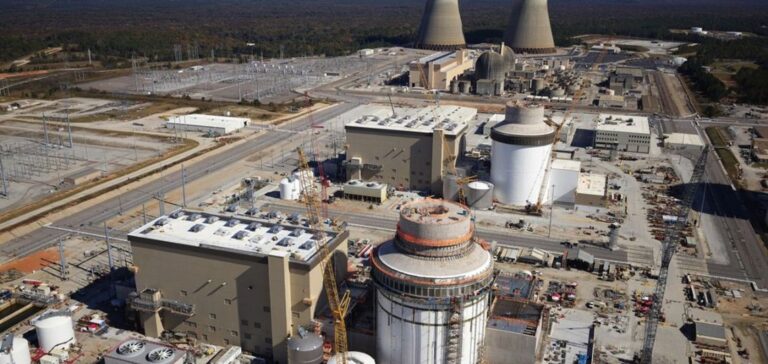The ADVANCE Act, or Accelerating Deployment of Versatile, Advanced Nuclear for Clean Energy, represents a significant step forward for the US nuclear industry. Signed into law by President Joe Biden, this text aims to encourage and support the development and deployment of new advanced nuclear technologies. One of the flagship measures of this legislation is the simplification of the regulatory approval process by the US Nuclear Regulatory Commission (NRC), which should reduce costs for companies wishing to license advanced nuclear reactor technologies. The law also provides for the creation of a prize to encourage the successful deployment of new-generation reactors. In addition, it mandates the NRC to improve its ability to qualify and license accident-tolerant and advanced nuclear fuels, essential for the future of nuclear power.
International Implications and Cooperation
The ADVANCE Act is not limited to American borders. It also supports the development of advanced nuclear reactors abroad. The NRC is encouraged to take the lead in international forums to develop regulations for these reactors, while the Department of Energy is tasked with improving its approval process for US technology exports, while maintaining strict nuclear non-proliferation standards. This legislation underlines the importance of international cooperation and collaboration between stakeholders to deploy advanced nuclear technologies on the scale needed to address climate change and energy security concerns.
Legislative progress
Introduced to the Senate in March 2023 by Senators Shelley Moore Capito, Tom Carper and Sheldon Whitehouse, with co-sponsors from a variety of political backgrounds, the ADVANCE Act passed the Senate on June 18 with an overwhelming 88-2 vote, having been approved by the House in May with 393-13. Tom Carper, chairman of the Senate Committee on Environment and Public Works, described the bill’s passage as a “major victory” for climate and energy security in the United States. President Biden stressed on social networks the importance of this legislation for American energy security, innovation and achieving a net zero emissions economy by 2050.
Impact and outlook
With the passage of the ADVANCE Act, the United States is positioning itself to be a world leader in the deployment of advanced nuclear reactors and innovative nuclear fuels. This law is designed to strengthen national energy security, reduce greenhouse gas emissions and create thousands of new jobs. It also aims to ensure the continued safety of this emission-free energy source. Small modular reactors and accident-tolerant fuels are key elements of this strategy, as they offer potential solutions to today’s energy challenges. Support for this legislation demonstrates the United States’ commitment to a sustainable and secure energy transition. This proactive approach, combined with enhanced international cooperation, is crucial to achieving global climate goals and ensuring clean, reliable energy for future generations. The next steps will be to monitor the impact of this legislation and encourage continued innovation in the nuclear sector.






















